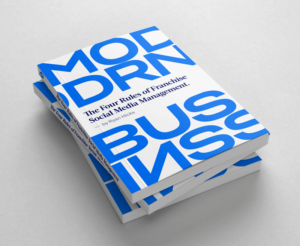Conducting effective keyword research is critical to the success of your Google Ads Campaigns. Keyword research is the basis of a successful Google Ads Campaigns. Whether you are a seasoned digital marketer or just starting your online advertising journey, understanding how to conduct effective keyword research for Google Ads Campaigns is essential to reaching the right audience and maximizing the performance of your campaign. Keyword research is a critical step in creating a successful Google Ads campaign. It involves identifying and selecting the right keywords that are relevant to your business or product.
In the expansive realm of digital advertising, the ability to speak the language of your audience begins with effective keyword research. A well-crafted Google Ads campaign is not just about displaying your message; it’s about presenting it to the right audience at the right moment. This introductory guide aims to unravel the intricacies of conducting impactful keyword research, the bedrock upon which successful Google Ads campaigns are built.
Keyword research is a cornerstone of a successful Google Ads campaign. By understanding the language your potential customers use when searching online, you can strategically position your ads to reach the right audience. Effective keyword research ensures that your advertising budget is invested in the most relevant and high-performing terms, increasing the likelihood of attracting valuable clicks and conversions.
In the ever-evolving landscape of online advertising, the art of effective keyword research stands as the linchpin to unlock the full potential of your Google Ads campaigns. Welcome to a comprehensive guide where we embark on a journey through the intricacies of conducting impactful keyword research, laying the groundwork for campaigns that resonate with your audience and drive meaningful results. In the dynamic world of online advertising, where every click holds the potential for a meaningful connection, effective keyword research is the linchpin to success in Google Ads campaigns.
In the ever-evolving landscape of digital marketing, the foundation of a successful Google Ads campaign rests on the thoroughness of your keyword research. Keywords are the building blocks that connect users with your ads, making it essential to understand the language and queries of your target audience. Effective keyword research isn’t just about identifying relevant terms; it’s about crafting a strategic approach to ensure your ads are not only visible but resonate with potential customers.
Here is a step-by-step guide on how to conduct comprehensive and effective keyword research for Google Ads Campaigns:

1.UNDERSTAND YOUR BUSINESS AND GOALS
First of all you should clearly define your business, products, or services and identify your marketing goals and what you want to achieve with your Google Ads Campaigns. Business objectives help your business achieve its desired results. Understanding your business and goals is the foundational step in conducting effective keyword research for Google Ads campaigns. This phase involves gaining clarity on your business objectives, target audience, and overall marketing strategy. To do this, you need to set measurable, realistic and specific goals. Business objectives are the steps a company takes to achieve desired results. These goals should be measurable so you can evaluate their progress and make necessary changes to your strategy.
2.USE GOOGLE KEYWORD PLANNER
Google Keyword Planner is a powerful tool provided by Google Ads Campaigns that plays a crucial role in helping advertisers refine and optimize their keyword strategy. The Google Keyword Planner is a powerful tool provided by Google Ads that assists advertisers in conducting keyword research and building effective campaigns. Designed to help businesses create effective and targeted Google Ads Campaigns, this tool provides valuable insights into keyword performance, search volumes and competition and access the google keyword planner tool within Google Ads Campaigns and enter your primary keywords to discover additional relevant keywords and get insights into search volumes.
3.EXPLORE LONG TAIL KEYWORDS
In the field of digital marketing and search engine optimization, the exploration of long-tail keywords has become a strategic imperative for businesses aiming to improve their online presence. Long-tail keywords, as opposed to broad and general terms, are more specific and usually consist of three or more words. Exploring long-tail keywords is a strategic approach in keyword research that involves targeting more specific and detailed search queries. Unlike broad or generic keywords, long-tail keywords are longer, more specific phrases that often indicate a higher level of user intent. Long-tail keywords are more specific and often less competitive and consider the styles that potential customers may use in their decision-making process.
4.ANALYSE COMPETITOR KEYWORDS
In the dynamic landscape of digital marketing, understanding and leveraging competitive keywords is a strategic imperative for businesses seeking a competitive advantage. Analyzing competitor keywords involves a thorough examination of the terms and phrases that competing businesses are targeting in their online content and advertising efforts. Analyzing competitor keywords is a strategic process that involves researching and understanding the keywords your competitors are targeting in their online content or advertising efforts. This analysis provides valuable insights into market trends, helps identify gaps in your own strategy, and informs decisions to enhance your online presence. Identify your main competitors and use tools like SEMrush or Ahrefs to analyze their keywords and find opportunities.
5.CONSIDER KEYWORD MATCH TYPES
In the field of online advertising, understanding and strategically implementing keyword matching types is as important as using the right tool to get your message to the right audience. Keyword match types dictate how closely a user’s search query must match the keywords you’ve selected to trigger the display of your ad. This meticulous approach to keyword targeting ensures that your advertising budget is spent efficiently and that your message is delivered to the most relevant audience. Understand the different keyword match types and choose the matching types based on your Google Ads Campaigns goals and budget.
6.FILTER AND REFINE KEYWORDS
In the dynamic landscape of digital marketing, filtering and refining keywords is a critical step in sculpting a targeted and high-performing campaign. This strategic endeavor involves careful testing and selection of keywords to ensure that your advertising efforts are focused on reaching the most relevant audiences. By filtering and refining your keyword list, you not only optimize your budget allocation, but also increase the overall effectiveness of your digital marketing initiatives. Avoid irrelevant or low-performing keywords. Prioritize keywords using a balance of relevance, search volume, and competitive
7.FOCUS ON NEGATIVE KEYWORDS
In the complex dance of online advertising, the strategic use of negative keywords has emerged as a powerful tool to increase the accuracy and efficiency of your campaigns. Negative keywords are words or phrases that prevent your ad from being displayed when included in a user’s search query. Identify negative keywords to exclude irrelevant traffic. In the ever-evolving landscape of digital marketing, keeping a pulse on user interests and search behaviors is paramount. Google Trends emerges as a dynamic and invaluable tool in this quest for real-time insights. Explore Google Trends to understand the seasonality of keywords. Identify trending keywords and adjust your strategy accordingly.
8.GROUP KEYWORDS INTO THEME
In the complex art of crafting a targeted and high-performing digital marketing campaign, the process of grouping keywords into themes emerges as a strategic masterpiece. This methodical approach involves organizing a diverse array of keywords into cohesive groups based on common themes, topics, or user intent. Organize your keywords into tightly themed ad groups. This helps in creating targeted ad copy and improving Quality Score.
9.EVALUATE KEYWORD INTENT
In the complex field of digital marketing, understanding and evaluating keyword intent is as important as understanding the language of user needs and wants. Evaluating keyword intent is a crucial aspect of keyword research that involves understanding the underlying motivations and goals behind the search queries users enter into search engines. Keyword intent can be categorized into different types, including informational, navigational, transactional, and commercial investigation. Keyword intent refers to the underlying motivation or intent behind a user’s search query. Understand the purpose behind each keyword whether informational, navigational, or transactional. Match your ad copy to the user’s intent.
10.REVIEW AND UPDATE REGULARLY
In the dynamic landscape of digital marketing, reviewing and updating is not just a job; It is a strategic imperative. Regularly evaluating and optimizing your digital marketing strategy is the compass that aligns your campaigns with evolving market trends, user behavior and industry dynamics. Regularly reviewing and updating your keyword strategy is a critical aspect of maintaining a successful online presence. In the dynamic landscape of digital marketing, consumer behavior, industry trends, and search engine algorithms continually evolve. Keyword research is an ongoing process. Regularly review and update your keyword list based on performance data and changes in your business landscape.
CONCLUSION
By following these steps, you can develop comprehensive and effective keywords for your Google Ads Campaigns, ultimately improving your google ads campaigns relevance and performance. In conclusion, effective keyword research for Google Ads Campaigns is not a one-time task but an ongoing process that requires vigilance and adaptability. Embrace the iterative nature of digital marketing, stay informed about industry trends, and let data guide your decisions.
In conclusion, effective keyword research is not a static task; it’s a dynamic process that requires agility, strategic thinking, and a commitment to understanding your audience. By embracing the principles outlined in this guide, your Google Ads campaigns can transcend mere visibility, becoming a dynamic force that resonates with your target audience, drives engagement, and ultimately propels your business towards sustained success in the competitive digital arena.
Effective keyword research is not just about selecting words; it’s a dynamic strategy that evolves alongside your business and the digital landscape. By staying proactive, informed, and adaptable, you can ensure that your Google Ads campaigns not only reach your target audience but resonate with them, driving meaningful engagement and success for your business. Effective keyword research is not a one-time task; it’s a dynamic and ongoing process that requires strategic thinking and adaptability. Effective keyword research is an ongoing process that requires regular monitoring and adjustment. By investing time in understanding your audience and selecting relevant keywords, you can enhance the performance of your Google Ads campaigns and achieve better results.
By staying attuned to the evolving digital landscape, understanding user behavior, and continuously optimizing your keyword strategy, your Google Ads campaign can achieve not just visibility, but resonance with your target audience, ultimately driving meaningful results for your business. To learn more about Google Ads Campaigns contact Digiskillz.



